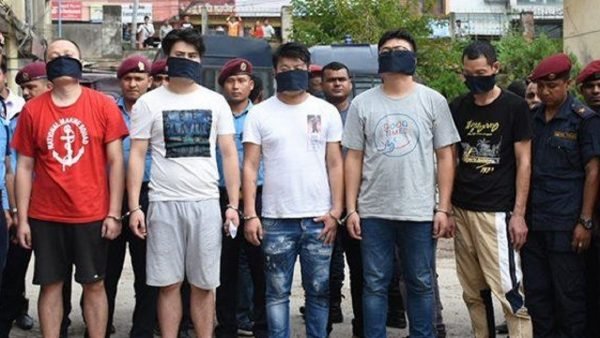KATHMANDU – Together with the increase in the arrival of Chinese tourists, their involvement in illegal activities is also increasing. The number of tourists extradited from the country for overstaying is at a rise of late, and the number of Chinese nationals to face this action is the highest of all.
According to Kamal Prasad Pandey, Information Officer of the Immigration Department, a total of 564 foreign nationals were deported from Nepal. Among them, 190 were Chinese nationals.
According to Pandey, Chinese nationals were found to be living in Nepal without obtaining visas or renewing them even after their visas expired.
Besides Chinese, other foreigners who have been convicted for various crimes have also been deported. Such crimes range from heinous crimes like murder and rape to fraud and banking crimes.
According to the department, it has been found that the largest number of Chinese citizens are living in Nepal illegally. Even though the visa period has expired, they have been staying without renewing it. The number of Chinese nationals living in Nepal illegally is increasing every year.
According to the department, they were also found to be involved in various crimes. In recent years, some Chinese citizens in Nepal have been arrested for being involved in cyber crime, illegal money laundering, betting, etc., according to police data.
Chinese citizens were also found involving in the smuggling of endangered animal parts, drugs, dollar transactions and gold.
The government of Nepal can deport foreign nationals who work against the laws of Nepal. According to the Immigration Act, 1992, foreigners deported by the Government of Nepal cannot re-enter Nepal during the period of expulsion.
Sub-section (2) of Section 10 of the Act has the provision of a fine. It says:
Any person who violates, or causes to be violated, Sub-section (2) of Section 9 related with the expulsion of the foreigners shall, for the first time, be punished with a fine not exceeding Rs 25,000 or imprisonment not exceeding two years, or in the cases where such person repeats the violations thereof, he shall be punished with a fine of up to fifty thousand rupees or with imprisonment for a term not exceeding five years or with both, for each violation.
Similarly, the Sub-section 4 of the same section says:
Except for the matters laid down in the Sub-sections above, a person who commits any act in contravention of this Act or the Rules framed hereunder may be awarded by the Director-General a fine of up to fifty thousand rupees, and the amount in question held to be payable by such person shall also be realized from such person.
Section 11 of the Act has the provision relating to the appeal from the dissatisfied parties.
It says that a party who is not satisfied with the punishment imposed under subsection (4) of Section 10 may file an appeal in the Appellate Court within 35 days.





















